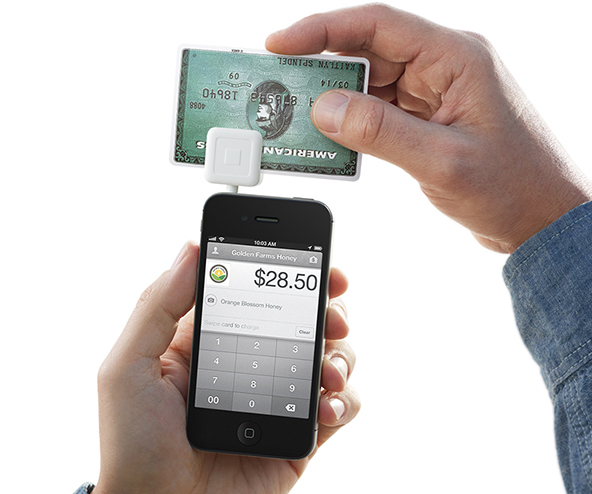How American Express Manages Fraudulent, Deceptive or Unfair Business Practices, Illegal Activities and Prohibited Merchants

American Express continually evaluates merchants to ensure compliance with their policies and procedures, in addition to assessing any potential risk to their business.
Prohibited Merchants
Some merchants are not eligible (or may become ineligible) to accept AmEx cards. American Express may terminate card acceptance (including immediate termination without prior notice to you), if it is determined that you meet any of the following criteria:
- Your participation as a merchant on the American Express Network or acceptance of cards (or both) may cause American Express not to be in compliance with Applicable Laws, regulations, or rules.
- You do not have a verifiable physical address and can only be reached by telephone.
- You are involved (or knowingly participate or have participated) in a fraudulent or illegal activity.
- You are identified as a sponsor of international terrorism as warranting special measures due to money laundering concerns, or as non-cooperative with international anti-money laundering principles or procedures.
- You are listed on the U.S. Department of Treasury, Office of Foreign Assets Contro, Specially Designated Nationals and Blocked Persons List (available at www.treas.gov/ofac).
- You are listed on the U.S. Department of State’s Terrorist Exclusion List (available at www.state.gov).
- You are located in or operating under license issued by a jurisdiction identified by the U.S. Department of State as a sponsor of international terrorism, by the U.S. Secretary of the Treasury as warranting special measures due to money laundering concerns, or as noncooperative with international anti-money laundering principles or procedures by an intergovernmental group or organization of which the United States is a member.
- Your verifiable physical address is not located in the United States, Puerto Rico or the U.S. Virgin Islands.
- You fall into one of the following categories and / or accept transactions for the prohibited activities displayed in the following table.
| Business Type | Description |
| Adult Entertainment | Internet adult digital content sites. |
| Cash Advances | Establishments that accept cards in connection with repayment of cash advances, including, but not limited to payday loans, pawn loans, or payday advances. |
| Check Cashing / Guarantee | Cardholder cashes a check using cards as a check guarantee. |
| Child Pornography | Any written or visual depiction of a minor engaged in obscene or sexually explicit conduct. |
| Condo )Real Estate) Down Payments | Payments to other debt-related real estate products. |
| Credit Restoration Services | A service that promises to remove negative factors from a consumer’s credit report by disputing it with the credit bureau and correcting errors like outdated or incorrect claims. |
| Debt Collection | Collection agencies, payday lenders, factoring companies, liquidators, bailiffs, bail bondsmen, and bankruptcy lawyers.
Exceptions: bail bondsmen fees (i.e., merchants must not accept cards to pay for a bail bond but merchants may accept cards to pay the fee to the bail bondsman). |
| Door-to-door Sales | Unsolicited vendors with immediate payment expected. |
| Escort Services and Non-Licensed Massage Parlors | Payment of potentially sexual related services. |
| Financial Services | Banks, credit unions, savings and loans associations, equities (defined as an instrument that signifies an ownership position, or equity, in a corporation, and represents a claim on its proportionate share in the corporation’s assets and profits, e.g., stocks, bonds, and securities), unit trusts, mutual funds, foreign exchange, Bureau de Change, and payday lenders. |
| Foreign Exchange Bureaus | Any establishment that allows the purchase of foreign exchange currency using an American Express card product. |
| Future Services | Investments made on futures maturity of goods and / or services with an intention of gaining return on investment (e.g., stock market, wine future, horse breeding, timber investment, precious metals). |
| Gambling | Casino Gaming Chips, Off-Track Betting and Wagers at Race Tracks, Gambling Services, Internet Gambling Sites.
Exceptions: Accommodations, restaurant, bar or gift shop facilities within a casino complex. |
| Lottery Sales | Sales of lottery tickets. |
| Marijuana Dispensaries | Sellers of marijuana, whether sold for recreational or medicinal purposes. |
| Mortgage Payments | Payments to other debt related real estate products. |
| Multi-level Pyramid Sales | Multi-level marketing system using one or more of the following practices:
– Participants pay for the right to receive compensation for recruiting new participants. – Participants are required to buy a specific quantity of products, other than at cost, for the purpose of advertising before participants are allowed to join the plan or advance within the plan. – Participants are sold unreasonable quantities of the product or products (also known as inventory loading). – Participants are not allowed to return products on reasonable commercial terms. |
| Payday Lenders | Payday lenders are companies that provide short-term loans at high rates of interest to consumers to help them meet short-term expenses (e.g., repayment of cash advances, including payday loans and payday advances). |
| Prostitution | Payment for sexual services. |
| Timeshares | Selling partial ownership of a property for use as a holiday home, whereby a cardholder can buy the rights to use the property for the same fixed period annually. |
| Travel Tour Operators | Travel Tour Operators without membership to a Travel Industry Bonding Agency or not an authorized ticket agent (e.g. ARC / IATA / ABTA). |
| Unlawful Sale of Prescription Drugs | Online sale of prescription drugs to U.S. consumers by a pharmacy that is not:
– Certified by VIPPS (Verified Internet Pharmacy Practice Sites) or – Licensed by the Board of Pharmacy in the state in which it is located. |
| Unlawful Sale of Tobacco and Smokeless Tobacco | Online sale of tobacco and smokeless tobacco products to U.S. consumers by a retailer that is not:
– Certified to pay state taxes and / or – Preventing sale of tobacco products to underage consumers. |
| Unregulated Charities | Merchant that does not have a tax exemption or local council registration number. |
| Virtual Currency | Card acceptance to purchase virtual currency that can be exchanged for real currency (e.g., Bitcoin). |
Mixed Business — If any segment of your charge volume is submitted from the aforementioned business types, you must not accept AmEx cards for those transactions. If you accept cards for these transactions, American Express will exercise chargeback. You may also be placed in one of American Express’ chargeback programs or canceled (or disentitled) for card acceptance (or both).
Monitoring
After you become a merchant on the AmEx Network, American Express monitors to identify potential risks. American Express uses internal and third-party information when monitoring and looks for, among other things:
- Disproportionate Disputed Charges and Chargebacks,
- Merchants that meet the High Risk Merchant criteria.
- Schemes to defraud American Express,
- Legal, compliance, or other credit and fraud risks and
- Data submitted in compliance with the Technical Specifications.
American Express will monitor you for actions or behaviors (or both) which may put American Express, issuers or cardholders at risk. Based on the results of this monitoring, American Express may take action to mitigate its risk, including one or more of the following:
- Requesting information about your finances and operations,
- Instituting card acceptance restrictions,
- Exercising chargeback, rejecting charges, charging fees or assessments,
- Requesting corrective action, or
- Terminating any card acceptance privileges or suspending those privileges until the risk has subsided.
High Risk Merchants
High Risk merchants are those types of businesses that American Express determines put the company at risk and / or whose business has excessive occurrences of fraud.
If American Express determines that you meet the criteria for one or more of the High Risk merchant categories, they may place you in a chargeback program and / or terminate card acceptance.
American Express considers you to be “high risk” if you meet at least one criterion in the following table.*
| Category | Description |
| High risk industry | Your type of business has had historically high occurrences of fraud and Disputed Charges with American Express or as compared to other similarly situated merchants (or both). Examples of high risk industries include: internet electronic delivery and aggregators. |
| Performance | You have recent high occurrences of fraud that present an excessive risk to American Express. You have had high occurrences of fraud and / or high fraud amounts for a number of consecutive months. |
| Canceled derogatory | Your agreement was canceled due to unsatisfactory activity. |
| Fictitious | You accept cards fraudulently. |
| Prohibited | You are not eligible to accept cards on the American Express Network. (See above). |
*This list is not exhaustive and American Express may consider other criteria as high risk and modify this list accordingly.
Fraudulent, Deceptive or Unfair Business Practices, Illegal Activities or Prohibited Uses AmEx Cards
If your Merchant Services Provider determines, or is notified by American Express, that there is reason to believe that you engage or have engaged (or knowingly participate or knowingly have participated) in any of the activities listed in the following table, in any scheme that defrauds American Express, issuers and / or cardholders, or in business practices that American Express deems fraudulent, deceptive, and / or unfair, corrective action may be taken on you, which may include but is not limited to:
- Placement in a chargeback program,
- Exercising chargeback or rejecting charges, or
- Termination of the agreement (including immediate termination without prior notice to you) or disentitlement of card acceptance.
| Factoring | Factoring occurs when transactions do not represent bona fide sales of goods or services at your Establishments (e.g., purchases at your Establishments by your owners (or their family members) or employees contrived for cash flow purposes). |
| Collusion | Collusion refers to activities whereby your employee collaborates with another party to conduct fraudulent transactions. It is your responsibility to set appropriate controls to mitigate such activity as well as to have monitoring systems to identify such activity. |
| Marketing fraud | Marketing fraud occurs when mail, telephone, or Internet Order solicitations are used for fraudulent or deceptive purposes (e.g., to obtain valid cardholder information for fraudulent transactions, or to charge unauthorized sales to a valid card account). |
| Identity theft | Identity theft is the assumption of another person’s identity to gain access to their finances through fraudulent merchant set-up or fraudulent transactions. |
| Illegal activities, fraudulent (other than marketing), unfair or deceptive business practices or prohibited uses of AmEx cards | If American Express determines, or has reason to believe, that you engage or have engaged (or knowingly participate or knowingly have participated) in fraudulent, deceptive, or unfair business practices, or accepted card to facilitate, directly or indirectly, illegal activity of any kind, American Express has the right to terminate your card acceptance.
If American Express finds that the transaction involved a prohibited use of the card (see above), American Express may apply the corrective actions listed above. |
*This list is not exhaustive and does not reflect all circumstances under which American Express may act to protect their interest.
Consumer Protection Monitoring Program
American Express monitors its Network for fraudulent, deceptive and unfair practices relating to the sale, advertising, promotion or distribution of goods or services to consumers.
If American Express determines, or has reason to believe, that you engage or have engaged (or knowingly participate or knowingly have participated) in such fraudulent, deceptive or unfair practices, you may be placed in American Express’ Consumer Protection Monitoring Program.
Examples of instances that might trigger American Express’ review of a particular merchant or establishment include, but are not limited to, frequent consumer complaints, regulatory or consumer advocate (e.g., Better Business Bureau) inquiries, media coverage of a particular merchant and / or industry and high levels of Disputed Charges and / or chargebacks.
If you are placed in the Consumer Protection Monitoring Program, American Express will require that a questionnaire be completed regarding your business practices and conduct an investigation.
American Express may suspend or refuse to allow card acceptance at an establishment or cancel (or disentitle) card acceptance, if:
- You do not respond to American Express’ questionnaire, by the date American Express designates, with sufficient information about your business practices, and / or
- American Express concludes that you or the establishment in question engage or have engaged (or knowingly participate or knowingly have participated) in fraudulent, deceptive or unfair practices relating to the sale, advertising, promotion or distribution of goods or services to consumers.
If, in the course of American Express’ investigation, it does not appear that you engage or have engaged (or knowingly participate or knowingly have participated) in such fraudulent, deceptive or unfair practices, American Express still may conduct an annual investigation of your business practices.
Image source: Wikimedia.


This does not sound my experience with AMEX ..they ruled in faver of the merchant GDC LLD, a high pressure travel company that promised me things that could not be delivered. I provided proof, in there writing, as to my case…no luck…I am out 2549.00. Grand Resorts Traver has 100’s of complaints like this on line …DECEPTIVE
They say:
American Express concludes that you or the establishment in question engage or have engaged (or knowingly participate or knowingly have participated) in fraudulent, deceptive or unfair practices relating to the sale, advertising, promotion or distribution of goods or services to consumers.